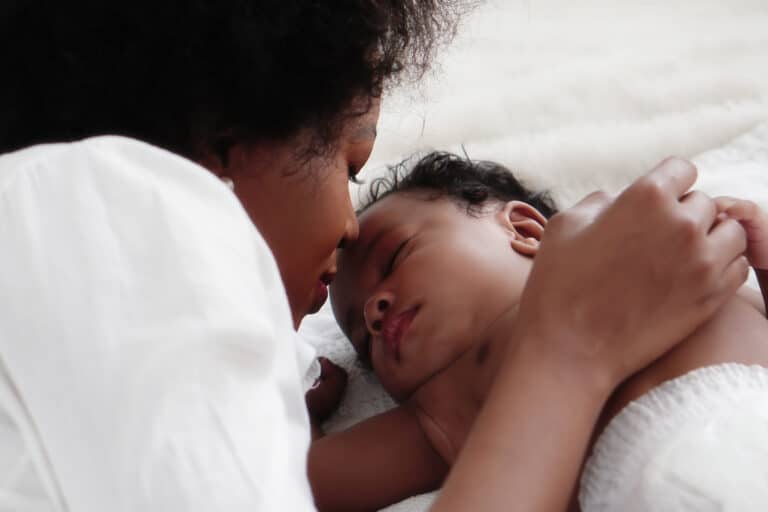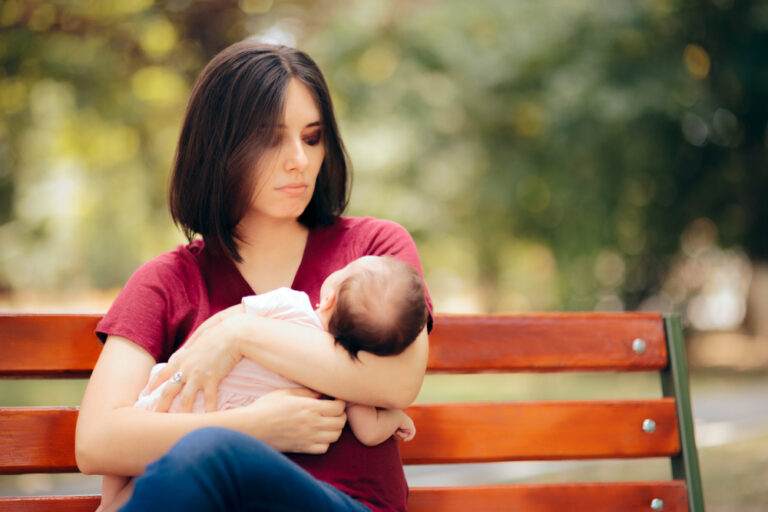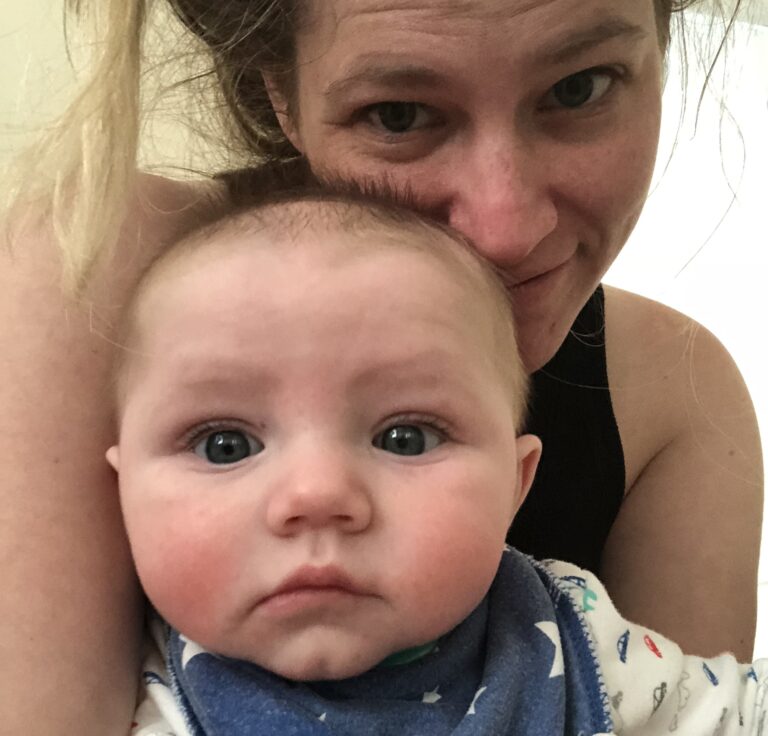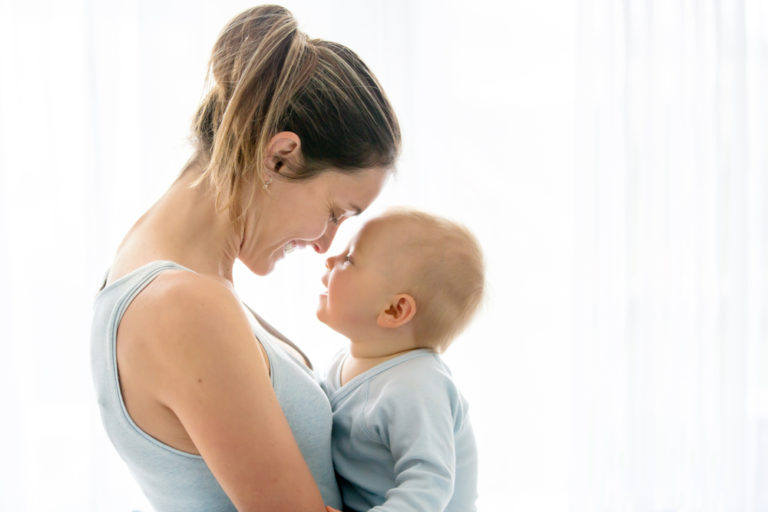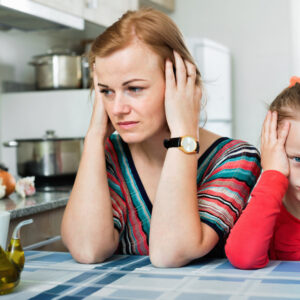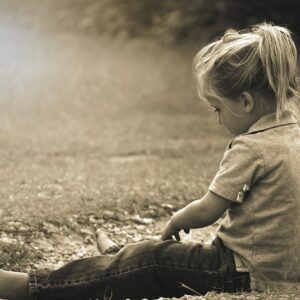One chilly fall afternoon, my parents came down for a visit. Our firstborn was about 4 months old, and things were still hectic. Like all new parents, we had very little time to ourselves. Date nights included our new baby, and we were still sleeping in shifts. My parents had offered to stay home with our son while we went and had an actual sit-down meal and ran some errands.
I felt good about it, I mean, I was exclusively pumping at the time so we couldn’t be gone for more than a couple of hours anyway. I had gone over my “baby bible” with them—every routine and procedure for any situation you could possibly imagine, as well as emergency contacts and phone numbers. Done and done. We left the house and it felt magical, for a while.
A half-hour into our trip, I hadn’t heard from my parents. Maybe they just wanted to give us some uninterrupted time together. An hour later, still nothing, so I decided to text my mom. Fifteen minutes later, no reply. So, I called my mom. No answer. I called my dad. No answer. My stomach was in knots and my heart was racing. Was everything OK? No, it couldn’t be—they would’ve answered their phones if everything was OK.
Horrifyingly detailed thoughts raced through my head.
Maybe they put the baby down for his nap and he didn’t wake up and they were trying to revive him. Maybe he found something on the floor and was choking and they were dealing with the paramedics. Maybe the house was on fire and they couldn’t get to his room and were forced out of the house as firefighters struggled to save him.
My gut was telling me something was wrong, so something HAD to be wrong—I just knew it. I decided we had to cut our sacred alone time short because I had to get home. My heart was beating out of my chest, my vision was blurry, and I was sweating profusely. By this point, we had only been gone for two hours, but I was convinced my baby was dead.
We pulled into the driveway. I ran to the door and threw it open. My dad was asleep on the couch and my mom was sitting in a chair reading a book. I lost it. In a haze of rage and tears I cried out, “IS HE OK?! WHERE IS HE?! WHY DIDN’T YOU ANSWER YOUR PHONE?!”
My mom, totally taken back and confused simply replied, “My phone is charging in the kitchen, he’s been sleeping—you said to put him down for his nap at 1, no?”
I charged into his room, fully ready to administer CPR and fumbling for my phone to dial 911.
And there he was, perfectly fine with his big blue eyes opening and closing sleepily. I swooped him up into my arms and held him close to my chest. I collapsed in the rocking chair, my chest quivering as I tried to catch my breath between the sobs. I slowly rocked him back and forth, back and forth, soothing him while trying to soothe myself.
RELATED: Perinatal and Postpartum Anxiety: The Sneaky Siblings of Postpartum Depression
I really wish I could say that was the moment when everything changed, that it was the moment I recognized what I was experiencing was postpartum anxiety and subsequently sought help, but it would be at least another eight months before that happened.
Why I couldn’t recognize it?
I had suffered from anxiety most of my adult life, starting in my late teens. It runs rampant on both sides of my family, and I knew it well—so how could I not recognize what I was experiencing as postpartum anxiety? I knew a lot about postpartum depression—I had filled out a survey at my 6-week OB checkup and every wellness checkup at the pediatrician’s office.
But not once did any survey or doctor mention postpartum anxiety. In fact, I didn’t even know it was a thing, it wasn’t even on my radar.
What I was experiencing was different from any anxiety I had ever known. It was next-level. It felt real, not hypothetical—another reason why it was so hard to seek help. I believed these thoughts were facts, not fabrications because they felt so real.
It seeped into every area of my life. Every clogged milk duct was breast cancer, a fight with my husband was an impending divorce and abandonment, my baby’s low-grade fever was a stay in the ICU or worse.
I lived like this for months.
Every night when my husband got home from work, he would sit with me on the couch, holding my hands as I unloaded every irrational and unsubstantiated fear on him. He would patiently listen and assure me we were all safe and healthy. Every single night for over a year.
He suggested therapy, medicine, anything that could potentially give me my life back, give us our life back. I know he felt helpless, especially as someone who had never experienced anxiety in his own life. He didn’t understand it, but he did see the havoc it was wreaking in my life even when I couldn’t. And I couldn’t . . . until my son turned one.
Shortly after his first birthday, I had this epiphany, a realization that caused me to hit my breaking point. I had essentially missed out on the entirety of my son’s first year of life.
The excitement of a new baby was covered in a cloud of anxiety, the joy all of his firsts were jaded by what-ifs and worries, gratitude for motherhood was guarded by a constant sense of dread. I was done. I sought the help I needed that very next day and was on the slow road to recovery.
I’m sharing my postpartum experience to let you know you are not alone if this all hits a little too close to home. Postpartum anxiety is a real thing. According to What to Expect, around 10 to 15 percent of new moms suffer from postpartum anxiety, and half of those with postpartum depression will also experience postpartum anxiety. Symptoms include but aren’t limited to:
- dread/sense of danger or impending doom
- racing thoughts
- excessive worry about health and baby
- an overwhelming sense of stress
- persistent agitated feeling
- insomnia or trouble falling/staying asleep despite exhaustion
- changes in heart rate/breathing
- chest pain
- nausea
- dizziness
- shaking
- chills/hot flashes
If you’re wondering why this is happening to you, What to Expect also discusses a few predispositions that can trigger postpartum anxiety in certain women. These include but aren’t limited to:
- hormonal shifts after giving birth
- sleep deprivation
- the stress of caring for a new baby
- natural marital relationship changes after baby arrives
- societal pressure to be a “perfect” mom
- personality type (particularly “Type A” women)
- personal and family history of anxiety
- previous miscarriage or stillbirth
- having a premie or a baby with health issues
Personally, I had the deck stacked against me with almost every single one of these risk factors applying to my situation—and I had no idea. It still blows my mind.
RELATED: A New Mom Can Feel Blessed and Thankful and Still Battle Postpartum Anxiety
I feel like it’s important to mention that postpartum anxiety is often accompanied by postpartum OCD, or repeated unwanted thoughts that you’ll accidentally or intentionally hurt your baby. These thoughts are intrusive and can feel shameful and scary, but it’s also imperative to note that postpartum OCD is NOT postpartum psychosis. Moms with postpartum OCD would never act on these intrusive thoughts as they’re just random (but frequent, frightening, and intense) thoughts.
I suffered from postpartum OCD in conjunction with my postpartum anxiety, and the best way I can describe it is by seeing everyday objects as worst-case scenarios for your baby.
A bathtub means thinking your baby will accidentally drown, a flight of stairs means thinking you’ll accidentally drop your baby down them, a boiling pot of water means thinking you’ll accidentally burn your baby. What to Expect notes that 11% of new moms experience OCD symptoms at two weeks postpartum—that’s basically 1 in 10 women.
If I could go back five years and tell my former self anything, I would say this: Get help now. Not a year from now, not six months from now, not a week from now, NOW.
Postpartum anxiety has become widely recognized and there are so many more resources today than there were just five years ago. Visit Postpartum Support International. The PSI HelpLine (800-944-4773) is a toll-free number anyone can call for confidential and basic information, support, and resources.
There’s one last thing I need you to remember: You are stronger than you know. You will make it to the other side of this because your baby needs you, he deserves the best version of you.
But even more so, YOU deserve the best version of yourself. You deserve to witness all of the joy and love and bliss that new motherhood has to offer.
And I’m here to tell you it exists, it is possible. I can say these things because I’ve lived that joy and love and bliss. I was able to experience all of it after I had my second child. And because I had finally received the help and treatment I needed, I was able to fully enjoy my daughter’s first year of life.
Now it’s your turn. You owe that to yourself, mama.
Note: The information included above is not intended as a substitute for professional medical advice, diagnosis, or treatment.
Originally published on the author’s blog

If you liked this, you'll love our book, SO GOD MADE A MOTHER available now!
Order NowCheck out our new Keepsake Companion Journal that pairs with our So God Made a Mother book!
Order Now


